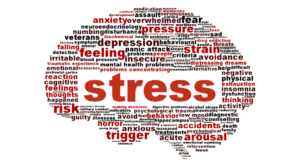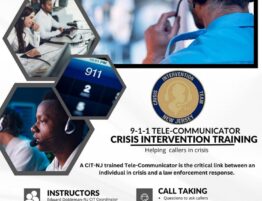
Jessica Stagg is an outpatient Clinician with Atlantic Behavioral Health at Newton Medical Center.
 Q: What if your teen won’t talk to you about stress? If you can see the stress and anxiety but he or she won’t talk, then what?
Q: What if your teen won’t talk to you about stress? If you can see the stress and anxiety but he or she won’t talk, then what?
A: When teens don’t want to or may not feel comfortable talking about what’s going on, that’s where a professional can come in. Having an unbiased, third party individual can help that teen to identify what’s going on, help them address it, and assist with involving the family, friends, and/or school professionals. Sometimes teens just want someone to talk to that won’t try to solve the problem. As parents, it’s often a priority to solve the problem but the teen may not feel they can talk freely about what’s on their mind.
In individual therapy, a person can explore what is going on in their life that is causing the stress and/or anxiety, and work on some solutions to help that person. Therapy is 100-percent confidential, provided a person is not threatening to harm themselves, harm others, or is being harmed. In therapy, a person can freely talk and will not be judged about what they say. The therapist can involve the teen’s family, friends, and/or school as much as the teen wants. It’s really a joint effort between teens and the therapist. There are also group therapies at Newton Medical Center that address common teen issues such as stress. Groups are a great outlet because a teen can feel connected with other teens having similar issues.
There is a lot of stigma surrounding the mental health world, but a therapist’s office isn’t as scary as one might imagine. My office contains tons of pictures of animals and board games. Also, therapy does not go on forever and ever, as therapy was once perceived. Therapy lasts as long as the person feels it is needed, whether that’s one week or one month.
For those interested in more information, or to seek therapy, please contact Newton Medical Center’s ACCESS to Care phone number at 1-888-247-1400. A person can ask for an individual and/or group therapy intake with one of our clinicians who can help.
This column is excerpted from the New Jersey Herald’s Community Health Chat, on coping with teen and adolescent stress. To view the full transcript of the chat, visit www.njherald.com.








